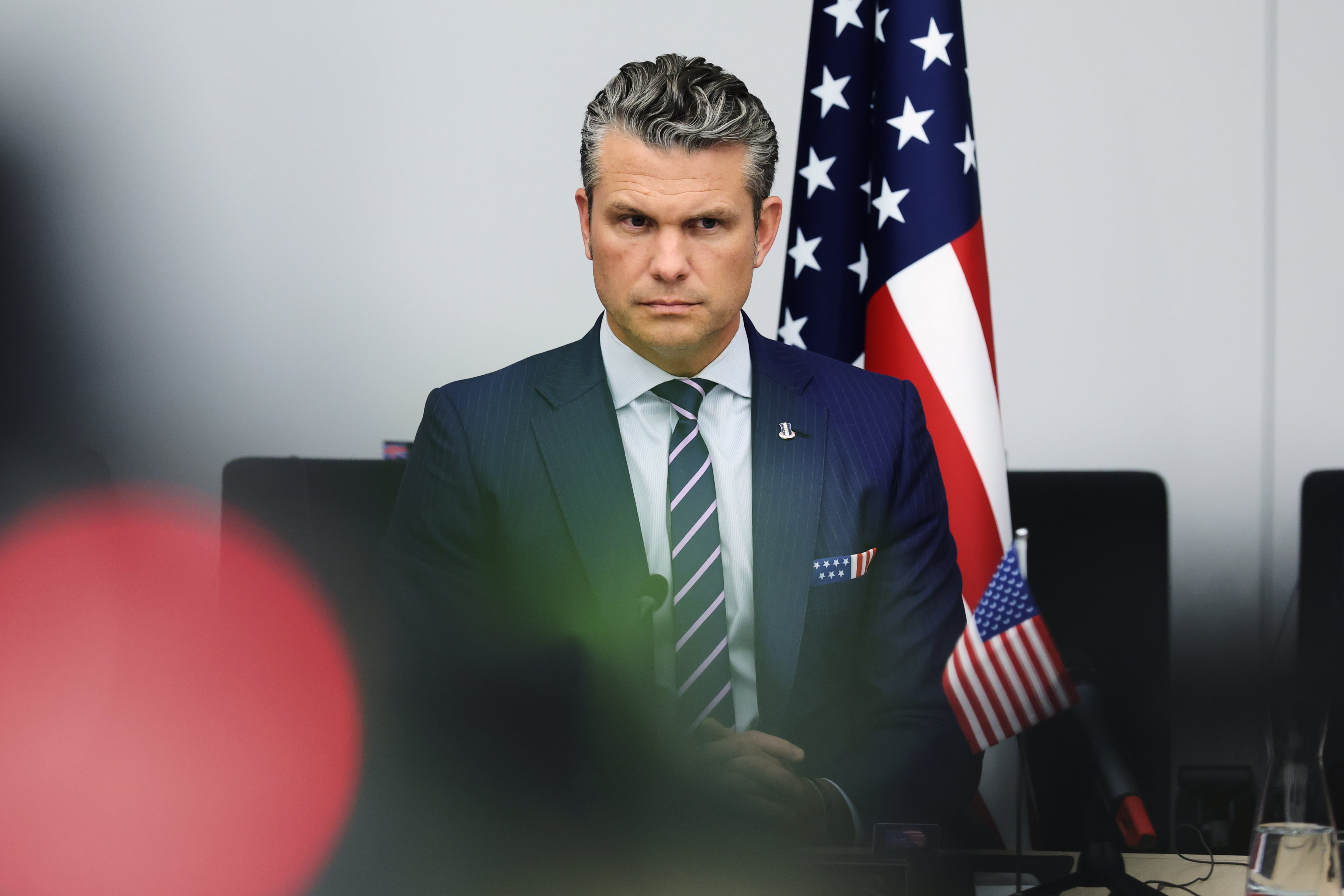WASHINGTON — When Congress returns from an extended recess after Labor Day, it is expected to finish work on its annual defense policy and appropriations measures — but President Barack Obama has issued a veto threat that hangs over it all.
Whether Republican leadership wants to joust with the president on the 2017 National Defense Authorization Act (NDAA) to score political points in an election year remains an open question. Earlier this year, a Pew poll found public support for increased defense spending had climbed to its highest level since a month after the 9/11 terrorist attacks.
"Do they want a fight, or do they see where President Obama vetoed the bill last year where there was no political outcome?" Justin Johnson, of the conservative Heritage Foundation think tank in Washington, said of GOP leaders in Congress. "Do they want a fight right before the election, or do they choose to wait until after the election to try to negotiate an outcome?
House Speaker Paul Ryan, R-Wis., has signaled that he expects a veto fight. In a message posted to his website Monday, he blasted Obama's NDAA veto last year, citing the Democrats' insistence on parity between defense and non-defense spending.
"Next up, veto of the national defense bill," Ryan's statement read. "We are still a nation at war, but President Obama decided to put domestic pet projects above our troops."
In the balance are policy provisions — some of which are viewed dimly by the president, the Pentagon and defense industry — to reform both the Pentagon's acquisition system and hierarchies emplaced by the 1986 Goldwater-Nichols Act.
The Senate's aggressive bill would shake up and rename the Pentagon's acquisition management organization to focus on more innovative technologies, and it would restructure defense contracting to saddle industry with more risk and more accountability for cost growth; the House bill would separate early technology development from the building of platforms.
Complicating matters, authorizers have no spending bill top-line to match their policy bill to as lawmakers have yet to cut a path forward on the defense budget — set to run out Sept. 30, the end of the fiscal year.
The funding bill, which is still stuck in the Senate, faces a procedural vote on Tuesday — but Senate Democrats have been blocking it so that they don't lose leverage on domestic spending bills they may want Congress to pass.
A stop-gap spending measure to fund the government beyond Sept. 30 is likely, but the duration has emerged as a partisan friction point. Some House conservatives, betting on a Republican president, have been pushing for a continuing resolution (CR) that extends into 2017 — a possibility Senate Minority Leader Harry Reid, D-Nev., is rejecting.
"Everyone should be alerted today to this: We are not going to be doing a long-term CR," Reid told reporters Thursday on a conference call. "We are not doing anything into next year. The Republicans should be made aware of that right now."
Reid, who apparently discussed the issue with Obama this week, said Democrats would accept a measure that continues funding into December, "up to Christmas," but nothing longer, according to Congressional Quarterly.
Complicating matters, the Senate spending and policy bills support the president's budget, while the House bills redirect $18 billion in wartime funds — which are exempt from statutory budget caps — for unrequested troops, ships, jets and training. The gambit spearheaded by House Republicans leaves operations in Afghanistan unfunded to force the next president to request Congress pass supplemental defense spending.
"They've called it a gimmick, and rightfully so; it's a way to get around the Budget Control Act caps," Johnson said of congressional Democrats. "House Republicans have been pretty clear that's what they're trying to do, that its their only option. It's sort of sleight of hand on accounting, and it's not where the president wants to go, so I think it sets up a big fight."
The White House has issued veto threats for both the House and Senate version of the NDAA, citing the House's approach to budgeting, restrictions on the closure of the Guantanamo Bay detention facility and some of the acquisition provisions.
"There’s a code term in there, ‘strongly object,’ which is normally interpreted as a veto threat, and there were more than 18 of those in this year’s statement of administration policy," said Andrew Hunter, a previous director for the Defense Department’s Joint Rapid Acquisition Cell, now with the Center for Strategic and International Studies think tank.
The 2017 NDAA has been in conference negotiations since mid-July, with staffs on both sides working through key differences. Congress-watchers are expecting the pace to pick up and big developments to happen after lawmakers return and meet in person.
Lawmakers have said they are hopeful they can finalize the bill before November, but outside defense experts see another late-year lame-duck vote as more likely.
"It's unlikely to make much progress in September," Johnson said.
Leo Shane III contributed to this report.
Email: jgould@defensenews.com
Twitter: @reporterjoe
Joe Gould was the senior Pentagon reporter for Defense News, covering the intersection of national security policy, politics and the defense industry. He had previously served as Congress reporter.





